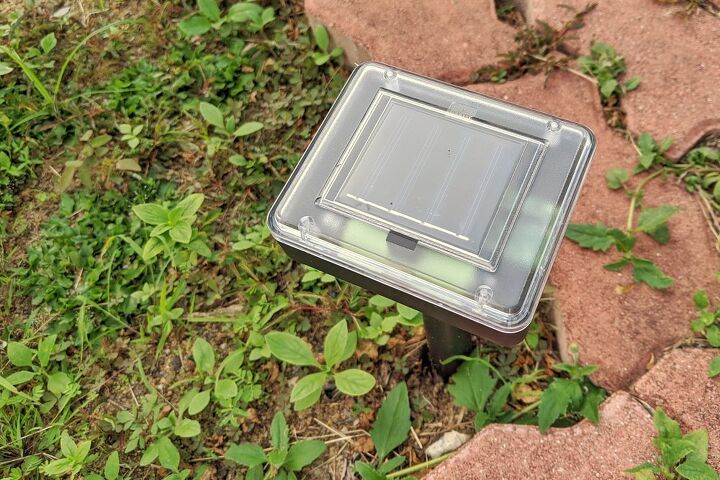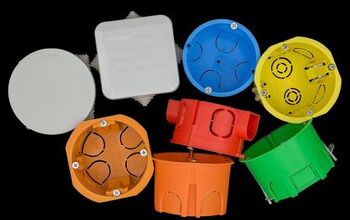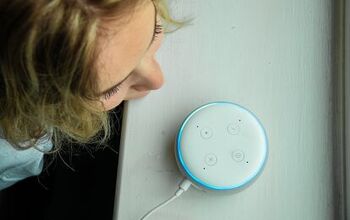Do Ultrasonic Pest Repellers Work On Squirrels? (Find Out Now!)

Squirrels can be fun to watch. However, they can become quickly become pesky when they start overturning your bird feeder or setting up a nest in your attic. Some homeowners resort to trying everything from coyote urine to steel wool in order to keep squirrels off their property. Many also turn an eye to ultrasonic pest repellers in a last-ditch effort to rid their house and home of squirrels. Do ultrasonic pest repellents actually work, though?
Unlike humans, squirrels can hear ultrasonic sounds. However, views are mixed on whether or not ultrasonic pest repellers work as advertised. In the past, the Federal Trade Commission has sent warnings to companies that made unsubstantiated or false claims about the effectiveness of their ultrasonic pest control products. Many consumers, though, have been satisfied with the results they have seen with ultrasonic pest repellers.
Let’s take a look at how ultrasonic repellents should work and some professional opinions on the best ways to keep squirrels off your property.
Do You Need Pest Control Services?
Get free, zero-commitment quotes from pro contractors near you.

How is an Ultrasonic Pest Repeller Supposed to Work?
A study by the University of Toledo found that fox squirrels were able to hear tones that range from 113 Hz to 49 kHz. An ultrasonic pest repeller creates a noise that most humans can’t hear but is annoying, perhaps even damaging, to squirrels and other pests. The sound waves the repeller makes have a short wavelength and are high-frequency. Some repellers on Amazon.com combine ultrasonic soundwaves with LED flashing lights and chirping sounds.
Several consumers stated that they saw a reduction in their squirrel population after a few weeks of using an ultrasonic repeller. However, it can be difficult to pinpoint the accuracy of ultrasonic repellers using verifiable data. This is why many professionals are cautious with recommending this type of treatment as a squirrel repellent.
Many homeowners are willing to try an ultrasonic repeller because it is a much cheaper option than paying for professional squirrel removal. An ultra-sonic repeller can cost around $50, while squirrel removal can cost anywhere from $200-$500.
Are Ultrasonic Pest Repellers Safe for Home Use?
Most ultrasonic pest repellers claim to only cause discomfort to pests and rodents. While dogs and cats can also hear ultrasonic sounds, they can generally tune them out. The level of sensitivity to sound will depend on your pet. If you do try an ultrasonic repeller, watch your pets’ behavior to see if there is a change. If your pets become agitated, it could mean that the soundwaves are hurting their ears.
Controlling a Squirrel Population with Professional Help
Laboratory tests have not been able to prove that ultrasonic repellers have a significant impact on pest control. It can’t hurt to try this type of repellent, but it may not work. The surest way to rid your home of live-in squirrels is to call professional help.
A pest management professional (PMP) should be able to offer the following services:
- Identify the pest problem
- Offer practical advice
- Outdoor/indoor squirrel removal
- Trap/Relocate squirrels
- Seal points of entry
- Basic clean-up
While setting up a trap on your own may be a cheaper option, it may not be the best solution. Even though squirrels may look cute and harmless, any wild animal can attack if it feels threatened or is protecting its nest. This is why the National Pest Management Association suggests using professional help to remove squirrels and other small wildlife from your home. Also, many areas have certain regulations you must follow for trapping animals.
Preventing Squirrels from Trespassing on Your Property
When you begin to see a reduction in squirrels, it is time to take some preventative measures to keep them from returning to your home. Here are some ways to keep squirrels at bay:
Clean Your Yard
Squirrels like to hang around places where they have easy access to food. You can limit the menu at your house by raking up nuts and fruit that fall from the trees and discarding them. When a squirrel sees that he can’t count on your house for a winter’s stock of acorns, he might prefer to hang out at your neighbor’s instead.
Don’t Give Them Food
Never feed a squirrel no matter how cute it looks! Squirrels can easily take it as an unlimited offer and may quickly become pesky guests. If you have bird feeders, you can put baffles on them. This may not prevent a squirrel 100% from stealing the food from the birds, but it can limit his access.
Cut Back Trees
If you have had trouble with squirrels getting into your attic in the past, you may want to cut back your trees. When tree branches overhang the roof, it can make an easy path for a squirrel to find its way into your attic. Squirrels can jump 9 feet from a tree to a housetop, so you may want to keep that in mind when you are trimming your trees.
Block Access to Your Attic
If your woodwork or attic vents have cracks or holes, you will want to give it a solid repair job so squirrels don’t make your house their home. You may even consider putting mesh wire or grates to place on the inside of gable vents.
Do You Need Pest Control Services?
Get free, zero-commitment quotes from pro contractors near you.

Related Questions
Where does a squirrel nest?
Squirrels may nest in either the ground or a tree. They may pinpoint a cavity in a tree or build their nest 20 feet or higher in the branches. Your attic may also look like a warm, safe place to raise a family to a squirrel.
Do squirrels carry diseases?
Squirrels are a type of rodent that in some instances can carry diseases. Diseases that ground squirrels may carry are the bubonic plague, leptospirosis, and very rarely, rabies. If you see a sick squirrel that is lethargic, has hair loss or is acting strangely, you can call animal control.
Do squirrels hibernate?
Squirrels do not hibernate, however, they are less active in cold weather. They generally spend their days searching for food and will sleep at night. In winter cold, your attic may look like a warm refuge. It can be a good idea to make sure your attic and roof are squirrel-proof before cold weather season.
Related Guide

Alex Praytor is a native Texan who got her degree in English Literature and decided to travel the globe. She finds the architecture and design of homes across cultures fascinating. In her spare time, she visits coffee shops with her family and creates projects for their own home. Alex enjoys sharing tips on how to keep repairs up to date while turning a house into a home.
More by Alex Praytor



























